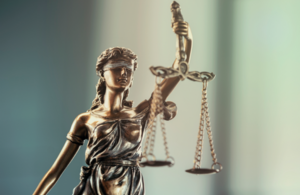15 years of Op Pangea: over 25 million illegally traded medicines and devices seized in the UK valued at more than £84m
Over two million doses of illegally traded medicines valued at almost £5m seized so far this year.

This year marks 15 years since the Medicines and Healthcare products Regulatory Agency (MHRA) launched Operation Pangea, an initiative cracking down on medicines crime.
Pangea is now coordinated by Interpol, and the MHRA’s Criminal Enforcement Unit (CEU) joined 89 countries for this year’s operation. Working with law enforcement partners, the CEU seized over two million doses of medicines this year valued at nearly £5 million.
Among the products seized in the UK were several prescription-only medicines including anti-depressants, pain medication and human growth hormones.
Andy Morling, MHRA Deputy Director of Criminal Enforcement, said:
“You should only purchase prescription medicines from a pharmacy and only when prescribed by a healthcare professional. Buying powerful medicines from any other source poses a direct danger to your health as they will not meet our strict quality and safety standards.
“If anyone has a concern about their health, they should visit their GP or pharmacist, get a correct diagnosis and if medicines are prescribed, obtain them from a legitimate source.
“Fifteen years ago, the MHRA started Operation Pangea, combining our knowledge and resources with those of international partners to disrupt and bring to justice the criminal gangs responsible for selling medicines illegally and causing harm around the world.
“We’re proud to see how Operation Pangea has grown from a small collaboration into a powerful example of what can be achieved through partnerships working to tackle this kind of offending.
“If you see these products, or any other powerful medicines, being sold online, you can help the MHRA take action by reporting concerns to us through our Yellow Card scheme.”
The first official Operation Pangea took place in November 2008, building on the UK’s established ‘Internet Day of Action’ (IDA). Over 1000 packs of unlicensed medicines were seized in the UK on a single day.
Operation Pangea has now grown into a huge global operation, combining the knowledge and resources from organisations in countries such as Canada, Germany, Ireland, Israel, New Zealand, Singapore, Switzerland and the USA, as well the World Health Organisation and Interpol.
Find out more
MHRA safety advice when buying medicines:
Be careful when buying medicines online.
Medicines and medical devices are not ordinary consumer goods and their sale and supply are tightly controlled. Websites operating outside the legal supply chain may seem tempting, for example, a prescription medicine offered without a prescription. Not only are these sites breaking the law - they are also putting your health at risk.
All pharmacies in Great Britain, including those online, must be registered with the General Pharmaceutical Council (GPhC) and meet their standards for registered pharmacies.
Do not self-prescribe.
Self-diagnosis and self-medication can be very dangerous. If you have a concern about your health, visit your GP, get a correct diagnosis and if medicines are prescribed, buy them from a legitimate source.
Visit the #FakeMeds website for tools and resources to help people purchase medication or medical devices safely online.
Notes to editors
-
Read Interpol’s press release.
-
Operation Pangea is an international initiative to target the illegal internet trade in medical products. It was instigated by the MHRA in April 2006 and started as the UK Internet Day of Action (IDA). The annual operation is now the largest internet-based enforcement action of its kind and is coordinated by Interpol, together with the World Customs Organisation (WCO), the Permanent Forum of International Pharmaceutical Crime (PFIPC), the Heads of Medicines Agencies Working Group of Enforcement Officers (WGEO), Europol and the Pharmaceutical Security Institute (PSI), and supported by the Center for Safe Internet Pharmacies (CSIP) and private sector companies.
-
A prescription-only medicine has to be prescribed by a doctor or other authorised health professional and it has to be dispensed from a pharmacy or from another specifically licensed place. It is illegal to advertise prescription-only medicines to the public. Controlled drugs are drugs named in the misuse of drugs legislation, the most common of which are on the controlled drugs list. The full lists can be found in both the Misuse of Drugs Act 1971 and schedules 1 to 5 of the Misuse of Drugs Regulations (MDR) 2001.
-
The MHRA continuously works with national and international partners to prevent fake medicines from entering the UK. Its #FakeMeds campaign provides quick and easy tools to help the general public avoid fake and substandard medical products.
-
The Yellow Card scheme enables the MHRA to monitor safety concerns such as suspected side effects or adverse incidents involving healthcare products. These include medicines, vaccines, blood factors and immunoglobulin products, medical devices, e-cigarettes and complementary therapies such as homeopathies. The scheme also collates information about suspected safety concerns involving defective, falsified or fake healthcare products. Anyone can report defective or fake healthcare products to the Yellow Card scheme via the Yellow Card scheme website or app.
-
The Medicines and Healthcare products Regulatory Agency (MHRA) is responsible for regulating all medicines and medical devices in the UK by ensuring they work and are acceptably safe. All our work is underpinned by robust and fact-based judgements to ensure that the benefits justify any risks.
-
The MHRA is an executive agency of the Department of Health and Social Care.
-
For media enquiries, please contact the newscentre@mhra.gov.uk or call 020 3080 7651.